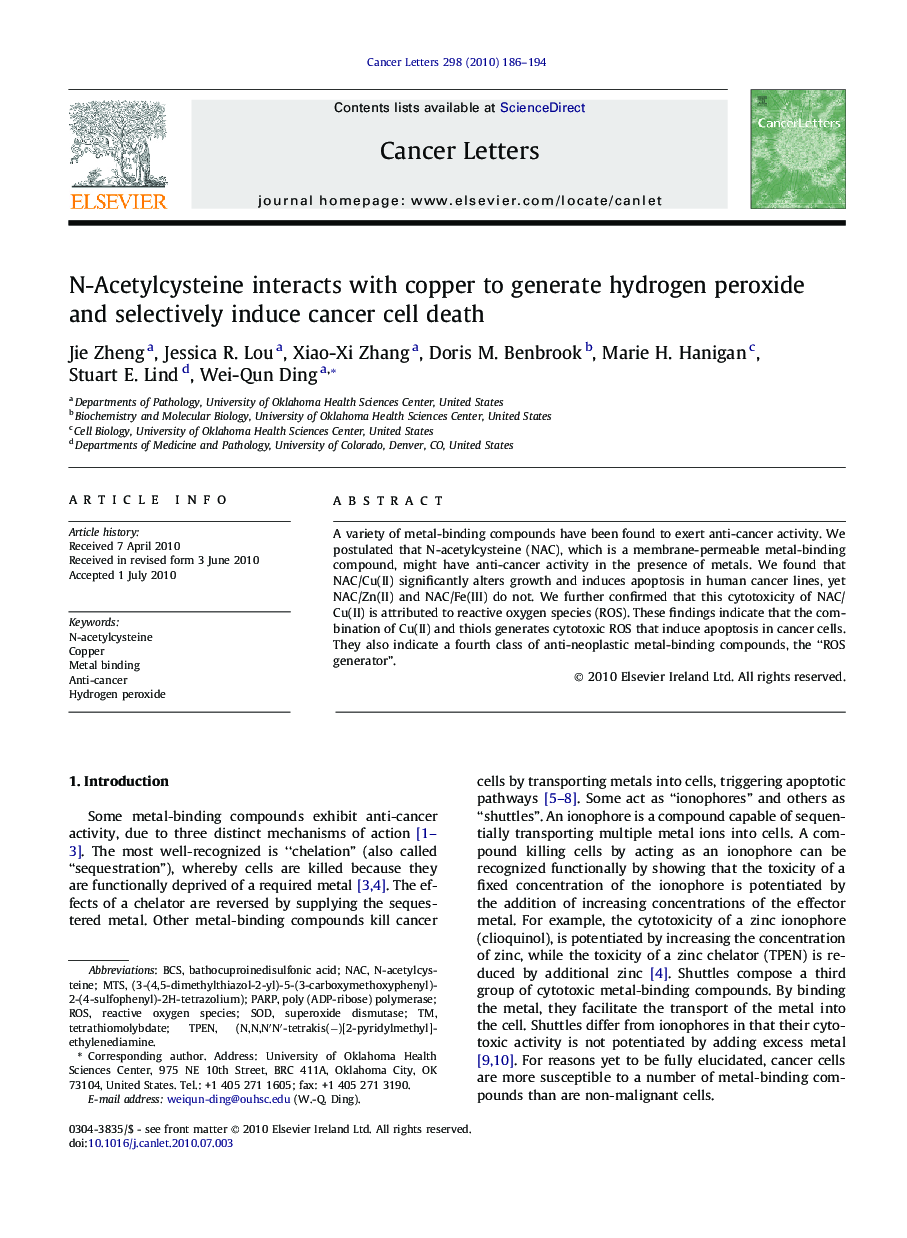| Article ID | Journal | Published Year | Pages | File Type |
|---|---|---|---|---|
| 2116428 | Cancer Letters | 2010 | 9 Pages |
Abstract
A variety of metal-binding compounds have been found to exert anti-cancer activity. We postulated that N-acetylcysteine (NAC), which is a membrane-permeable metal-binding compound, might have anti-cancer activity in the presence of metals. We found that NAC/Cu(II) significantly alters growth and induces apoptosis in human cancer lines, yet NAC/Zn(II) and NAC/Fe(III) do not. We further confirmed that this cytotoxicity of NAC/Cu(II) is attributed to reactive oxygen species (ROS). These findings indicate that the combination of Cu(II) and thiols generates cytotoxic ROS that induce apoptosis in cancer cells. They also indicate a fourth class of anti-neoplastic metal-binding compounds, the “ROS generators”.
Keywords
Related Topics
Life Sciences
Biochemistry, Genetics and Molecular Biology
Cancer Research
Authors
Jie Zheng, Jessica R. Lou, Xiao-Xi Zhang, Doris M. Benbrook, Marie H. Hanigan, Stuart E. Lind, Wei-Qun Ding,
